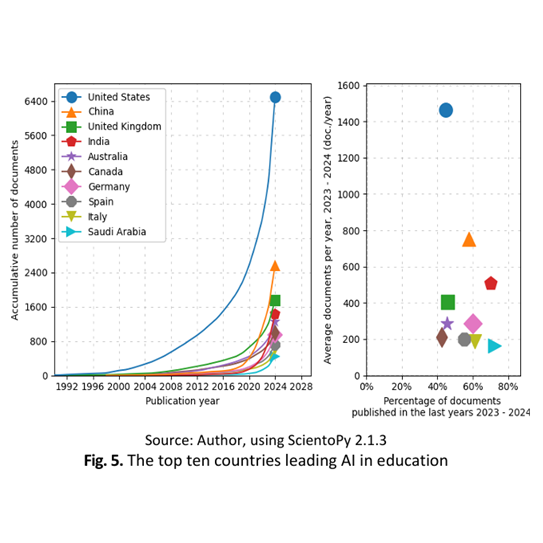Unveiling AI in Education: A Global Bibliometric Review of Research Trends, Key Theories, and Innovations
DOI:
https://doi.org/10.37934/aaij.1.1.4661Keywords:
AI in education, bibliometric analysis, artificial intelligence, educational technology, ScientoPy, research trends, citation analysis, pedagogical innovationAbstract
The rapid advancement of Artificial Intelligence (AI) has profoundly transformed education, revolutionizing teaching methodologies, student engagement, and institutional decision-making. However, despite the increasing integration of AI-driven technologies such as intelligent tutoring systems, adaptive learning platforms, and generative AI tools like ChatGPT, there remains a pressing need for a systematic evaluation of research developments in this field. This study conducts a comprehensive bibliometric analysis to map global research trends, theoretical foundations, and key innovations in AI-powered education.Utilizing data from Scopus and Web of Science (WoS), this study analyzes 23,132 valid research papers using ScientoPy, a specialized bibliometric tool. The findings reveal a substantial surge in AI-related educational research, particularly post-2020, transitioning from theoretical discussions to practical applications in personalized learning, machine learning-driven assessments, and ethical AI governance. The United States, China, and the United Kingdom emerge as the leading contributors, while prolific publication sources include ACM International Conference Proceeding Series, Sustainability, and Education and Information Technologies. Citation analysis identifies influential studies that have shaped AI-driven educational policies, with prominent works addressing AI-assisted evaluations, the ethical challenges of AI in academic settings, and the role of generative AI in shaping modern pedagogy. This research also highlights dominant theoretical frameworks, including Self-Determination Theory and Activity Theory, offering insights into the cognitive and behavioral aspects of AI-enhanced learning environments. Moreover, emerging trends indicate growing research interest in AI applications in K-12 education, interdisciplinary collaborations, and the ethical implications of AI-generated content in academia. By presenting a data-driven bibliometric perspective, this study serves as a critical resource for educators, policymakers, and researchers, fostering informed decision-making and promoting the responsible integration of AI in educational landscapes.











